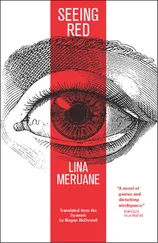As I looked up, unseeingly, into the nearly deserted stands, and through the halo of the roof into the night sky of Germany, I thought about the magnitude of my mistake. Its implications kept going around in my head. I was too upset to think about the future but I did conclude that my twenty-six-year career was ending there and then. I worked out later that the game in Stuttgart was my 1,500th match, exactly. At that moment, I assumed it would be my last.
I became aware that there were other people out on the pitch area and saw that assistant referee Glenn Turner was standing, appropriately enough, by the touchline. I walked over and he gave me a hug. Neither of us said anything. Neither of us could. Finally, I left the pitch to make my way to the official car which would take me back to the hotel. But I took one last, lingering look back at the stands, the roof, the lights and the scoreboards. I was convinced I would never referee in a top stadium again.
There were even lower ebbs to come. In the days that immediately followed, I was in a dark, black cave. And for a long time afterwards there were bleak moments when the harrowing events of that night in Stuttgart came back to overwhelm me. I don’t suppose I shall ever stop having nights when I lose sleep. I have a life sentence of asking myself, ‘Why?’
But I did not let my career end there. I did not want to be defined by Stuttgart. It is only part of my story.
Yet I know that other people do define me by Stuttgart and the biggest mistake I made. It became clear, in the season that followed, that the wound my career suffered that night was, indeed, mortal. So we shall return to the Gottlieb-Daimler Stadion in this account, just as I return there in my mind all too often. And I shall explain what happened – even though I cannot explain why.
But first I want to tell you how, in the season that followed the 2006 World Cup, some very good folk, like David Beckham, tried to heal that wound. I also need to tell you how others, like John Terry, made the pain impossible to ignore.
CHAPTER TWO
The first telephone call I received when I arrived home from the World Cup was from David Beckham.
My wife, Julia, picked me up from Heathrow airport on her own, without our three children. Neither of us wanted pictures of the kids in the newspapers. She thought, as well, that I would need a bit of time alone with her, a bit of support, before being strong in front of our two daughters and our son.
Then, about an hour after I had arrived back, at last, to my home in Tring, my mobile rang. I did not want to talk to anyone but I answered it and a voice said, ‘Graham? It’s David. David Beckham. Becks.’
I thought it was a joker or a hoaxer. But he said, ‘Remember I got that shirt for your daughter, Gemma?’
So I knew it was him. It was the England captain. He was in a hotel in Gelsenkirchen and the next day he was going to lead his country in a World Cup quarter-final. Yet he had taken time to telephone me. I had already received one message of support from him. The England squad had watched my own World Cup implode and several had sent messages to me via another referee who visited their base camp. I was told that Beckham, the captain, had made a special point of saying, ‘Tell him to keep his chin up.’
Now Beckham was on the telephone; a man and a father who could empathize with me and who wanted to reach out in friendship to me and my family. He knew all about making a mistake at a World Cup – and more than anyone about being vilified for it. People in England had hanged effigies of Beckham after he was sent off in 1998 against Argentina.
I had played a small part in helping him after 1998, by encouraging him during the Community Shield match which began the next season. He was only twenty-three then. Now, in 2006, Beckham was such a global mega-celebrity that when he phoned me, I was as excited as a star-struck kid.
I had been there, done that and got all the refereeing shirts. I was blasé about celebs. And at that moment, I didn’t care about much at all, because I was so crushed by Stuttgart. Yet when Beckham phoned I fumbled with the buttons, trying to put the mobile on ‘speaker’ so that Julia could hear. I did not manage to find the right buttons. In any case, what the England captain said was a personal message for me.
He told me not to let it get me down. He told me it would pass. He asked if there was anything he could do.
What a man.
Friends and family had helped me when I was in the black cave of my abject despair in Germany. Thinking about the precious people in my life had provided the first pin-pricks of light. Now, back in England, Beckham’s humanity gave me real inspiration.
A lot of good people also helped persuade me to keep going. The saying is that ‘you learn who your friends are’ and that is true. But you also learn that some people you barely know are decent as well. I remember collecting my son, Harry, from school one day in the season that followed the World Cup, when Burnley manager Steve Cotterill telephoned. He said, ‘I hear you’re thinking about packing it in, Pollie. Don’t do it.’ I had only refereed Cotterill’s team once and yet he had made the effort to find my number and contact me. Gestures like that meant a lot, and so did the support of Keith Hackett, the man in charge of England’s professional referees, who said to me, pointedly, ‘Tell me why you should give up?’
So I kept going and the first match I refereed after the World Cup was a friendly between Tring Athletic and Bedmond Social. I had promised my local club that I would do it and I did not want to let them down. There were only about fifty spectators and I could not help thinking, as I warmed up, ‘This is my 1501st match. If things had gone differently, match number 1501 might have been the World Cup Final.’
During the game, one of the players hacked somebody down but, because it was a friendly, I didn’t book him. I said, ‘I’ll tell you what, mate – in the season that would have been a yellow.’
He replied, ‘And two more and I would have been off.’
It was the first joke made to my face about Stuttgart. I managed a wan smile. I felt no antagonism at all towards a player but, in that moment, I saw a future of endless similar jokes.
The next day I refereed another friendly – between Chelsea and Celtic at Stamford Bridge. Uriah Rennie became unavailable and they asked me. It went well enough and on the Friday I went to Chelsea’s training ground to talk to the players about new interpretations of the Laws. José Mourinho, the Chelsea manager, had asked for me. That too, went very well. Everything was sweet.
But then came the first competitive match: Saturday, 12 August 2006 – Football League, Colchester United versus Barnsley. I could not face it.
The plan was to ease me back in. The Football League season kicked off before the Premiership and so it seemed a good idea for me to start at Layer Road, Colchester. But I was not even ready for that. I pulled over and sat in the car in a lay-by on the A12, with the radio off, alone with my thoughts. They were all negative thoughts. For the first time, in a career that had taken me from Division Five of the North Herts League to two World Cups, I did not think I could fulfil an appointment.
But of course I had to and of course I did.
Colchester had been promoted to the top division of the Football League for the first time in their history. Their ground held only 6,000 and there were just 4,249 present for their second home game of the season, the Barnsley match. Yet I knew there would be a big media presence.
Peter Drury of ITV had already telephoned me to ask if I would do a pre-match interview with Robbie Earle. Peter is a good friend and I had admired Robbie when he was a player and had grown to like him as a man. But I declined the invitation to talk to the nation. I had made up my mind that an interview I had given in Germany would be my last public word for a year at least.
Читать дальше












